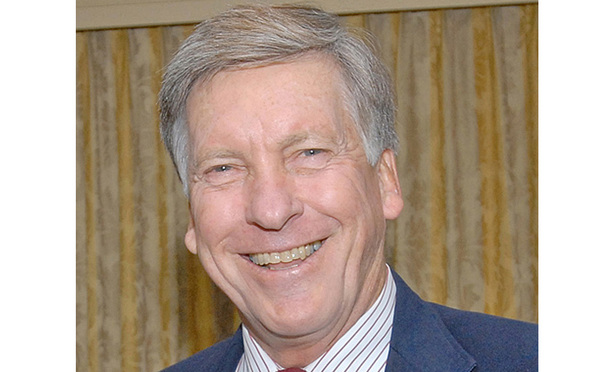 Judge William Zloch, of the U.S. District Court for the Southern District of Florida. (Photo: Melanie Bell)
Judge William Zloch, of the U.S. District Court for the Southern District of Florida. (Photo: Melanie Bell)
U.S. District Judge William Zloch must decide whether political donors have the right to take their disagreements with a party’s decisions to court.
A Fort Lauderdale federal judge is set to decide a sticky legal question: Can donors to a political party sue when they believe one candidate has been favored over others?
The class action lawsuit against the Democratic National Committee arises from the 2016 presidential primaries, with more than 100 donors to the committee and to the Bernie Sanders campaign claiming the DNC defrauded them by allegedly favoring Hillary Clinton after promising an “evenhanded and impartial” process in the committee charter.
The question of whether the DNC truly showed any favoritism by “disseminating media narratives” and “taking direction from Hillary Clinton’s campaign operatives,” as the plaintiffs claim, is an issue for later in the case. For now, U.S. District Judge William Zloch must decide whether political donors have the right to take their disagreements with a party’s decisions to court.
Defense counsel for the DNC and its former chairwoman, U.S. Rep. Debbie Wasserman Schultz, argued the process was fair — but even if it wasn’t, the lawyer insisted, the donors have no right to sue under the charter.
“We could have voluntarily decided that, ‘Look, we’re gonna go into back rooms like they used to and smoke cigars and pick the candidate that way,’” Bruce Spiva, a partner at Perkins Coie in Washington, D.C., said at an April 25 hearing on the DNC’s motion to dismiss. “That’s not the way it was done. But they could have. And that would have also been their right, and it would drag the court well into party politics, internal party politics to answer those questions.”
Miami attorney Jared Beck, who brought the case with his Beck & Lee partner and wife Elizabeth Lee Beck, argued the “fraud on the market” principle in shareholder litigation is also applicable to people who put money into a campaign after allegedly relying on misrepresentations. The U.S. Supreme Court also ruled in Madigan v. Illinois that charities are not insulated from fraud lawsuits when they mislead donors, he argued.
“Just because politics is involved doesn’t mean the basic principles of fraud and misrepresentation don’t apply,” Beck said in an interview Wednesday.
Spiva argued at last month’s hearing that the Madigan case says charities can be sued for soliciting donations for, say, after-school programs for kids and then buying a Mercedes-Benz — but there’s no standing for donors who simply argue the kids aren’t being served well enough.
Any court that seeks to find out whether a political party favored one candidate is violating the party’s First Amendment right to free association, Spiva argued.
“This, again, goes to how the party runs itself, how it decides who it’s going to associate with, how it decides how it’s going to choose its standard bearer ultimately. … Those are internal issues that the party gets to decide basically without interference from the courts,” he told the judge.
Beck said he didn’t view the issue as political and said he was dismayed by the idea that people who spent money based on alleged fraud couldn’t recover it.
“Your Honor, I’m shocked to hear that we can’t define what it means to be evenhanded and impartial,” he said. “If that were the case, we couldn’t have courts. I mean, that’s what courts do every day, is decide disputes in an evenhanded and impartial manner.”
After hours of questioning, the judge said he would be taking his time to come to a ruling on the “complex” legal issues.
“This is a very interesting case, to say the least,” Zloch said. “And counsel for the plaintiffs spoke about whether or not our society … is in a dire situation. And so I leave the lawyers with this. Democracy demands the truth so people can make intelligent decisions.”
The case has generated a lot of conversation, filling Elizabeth Beck’s inbox with tens of thousands of emails when it was first filed last summer. The plaintiffs attorneys said they hope the case helps educate people about the legal system, and they have been feeding public interest through a website, Twitter and Facebook accounts and through unusual efforts such as livestreaming service of process.
“I feel that a lot of people in the class, especially the people that were really fervent Bernie Sanders supporters, they feel that there’s been no semblance of justice for them for having the primaries stolen from their candidate,” Jared Beck said. “So many people are putting a lot of hope in this particular process that it will make things right.”
Spiva did not respond to a request for comment. He is joined on the defense by Mark Caramanica of Thomas & LoCicero in Tampa.
Contact Celia Ampel at [email protected]. On Twitter: @CeliaAmpel
This content has been archived. It is available through our partners, LexisNexis® and Bloomberg Law.
To view this content, please continue to their sites.
Not a Lexis Subscriber?
Subscribe Now
Not a Bloomberg Law Subscriber?
Subscribe Now
LexisNexis® and Bloomberg Law are third party online distributors of the broad collection of current and archived versions of ALM's legal news publications. LexisNexis® and Bloomberg Law customers are able to access and use ALM's content, including content from the National Law Journal, The American Lawyer, Legaltech News, The New York Law Journal, and Corporate Counsel, as well as other sources of legal information.
For questions call 1-877-256-2472 or contact us at [email protected]




